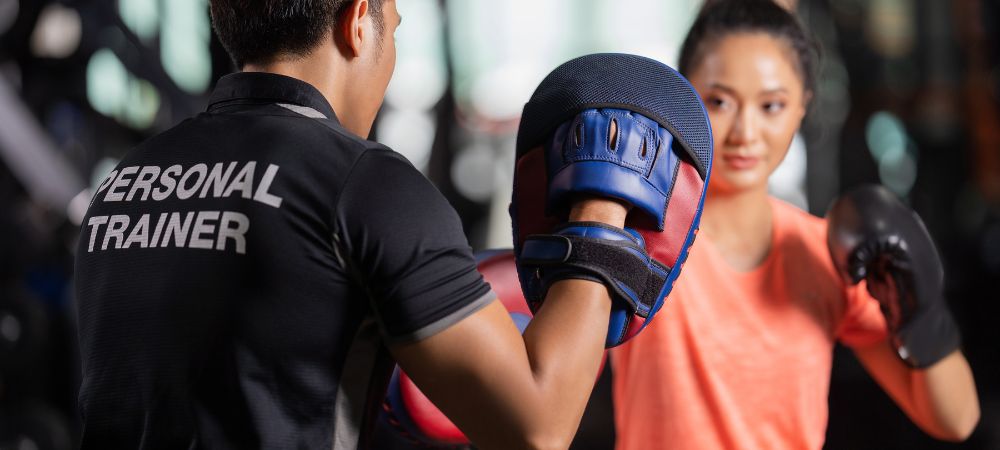

When planning an international trip, researching destination safety information is crucial. It ain't just about packing your bags and hopping on a plane; there's more to it than that. You don't wanna end up in a situation where you're unprepared or caught off guard by local issues.
First off, let's not ignore the importance of understanding local laws and regulations. Some countries have rules you'd never think of back home. For instance, chewing gum in Singapore? Obtain the inside story browse through right here. It's a no-no! So, make sure you ain't breaking any laws unknowingly.
Health precautions shouldn't be overlooked either. Vaccinations are often required for entry into many countries. And it's not just about meeting entry requirements; it's about protecting yourself from diseases that might be prevalent in the area. Don't forget to check if you need malaria pills or other medications!
Another thing people tend to overlook is social customs and cultural norms. What’s acceptable behavior at home might not fly elsewhere. Dressing modestly, particularly in certain conservative countries, can save you from unwanted attention or even legal trouble.
Safety information isn't limited to crime rates or political stability either. Natural disasters like earthquakes, tsunamis, and hurricanes can also affect your travel plans significantly—so don’t neglect this aspect when doing your research.
Language barriers can pose another challenge; knowing some basic phrases in the local language can go a long way in ensuring you're safe and well-received by locals. Even simple things like knowing how to ask for help or directions could prove invaluable.
And let's face it: nobody wants their trip ruined by financial troubles due to unforeseen circumstances like theft or frauds that are common among tourists. Use reliable sources for currency exchange and avoid carrying large amounts of cash when exploring new places.
Lastly, always keep emergency contacts handy—a list including local embassies, police stations, hospitals—because you never know when you might need 'em.
In conclusion, taking the time to thoroughly research destination safety information ensures you're better prepared for whatever comes your way during international travels. additional information readily available click that. It's like they say: Better safe than sorry!
Sure, here's an essay with the requested characteristics:
---
Securing travel insurance for international trips isn’t something to be taken lightly. I mean, imagine you’re halfway across the world and something goes wrong – you don’t wanna be stuck without a safety net! Yet, so many people think they won’t need it. They say, "Oh, nothing will happen to me!" Well, that’s wishful thinking at best.
When you're traveling abroad, there's a lot that can go wrong. You might lose your luggage or have your flight canceled. Worse still, you could get sick or injured in a place where medical costs are insanely high. Travel insurance helps cover these unexpected expenses and more. It gives peace of mind knowing you won't be out of pocket if things don't go as planned.
But hey, not all travel insurances are created equal! Some policies cover only basic stuff while others offer extensive coverage including emergency evacuation and repatriation of remains – yikes! You’ve gotta read the fine print carefully before choosing one. Don't just assume every policy is going to give you complete protection.
It's also crucial to consider what activities you'll be doing on your trip. Planning some adventurous stuff like scuba diving or bungee jumping? Make sure your insurance covers those risky activities because not all do! Otherwise, you might find yourself in a sticky situation where you're paying out-of-pocket for any mishaps.
Then there’s the issue of pre-existing medical conditions. Many insurers won’t cover these unless disclosed beforehand and sometimes even then it's a hassle getting them included. So if you've got any health issues make sure they're covered otherwise it could lead to big problems later on.
Of course cost is always a factor too but skimping on coverage just to save a few bucks isn't smart either. Cheap policies often come with lots of exclusions which means more out-of-pocket expenses if something goes wrong - which kinda defeats the purpose doesn’t it?
additional details available click it.
In conclusion securing good travel insurance should be at top of everyone’s list when planning international trips despite what some might think about its necessity; after all better safe than sorry right? With right policy in hand travelers can explore world confidently knowing they’re protected against unexpected events that might arise during their journey!
---
Emergency Preparedness and Response Planning for Home Safety Measures is crucial, yet not everyone gives it the attention it deserves.. Oh my goodness, that’s a scary thought!

Posted by on 2024-07-06
When it comes to international travel, vaccinations and health precautions are pretty crucial. You might think you don't need them, but oh boy, you'd be wrong! Not taking these steps can lead to some serious issues that could ruin your trip or even worse, impact your long-term health.
First off, let's talk about vaccinations. They're not just for kids anymore. Before jet-setting across the globe, it's essential to check which vaccines are recommended or even required for your destination. Different countries have different diseases that you may not be exposed to at home. For instance, yellow fever is still a thing in certain parts of Africa and South America. And guess what? Some countries won't let you in without proof you've been vaccinated against it! So yeah, skipping this step ain't an option if you're headed there.
Now onto general health precautions – they're equally important. It's not only about getting shots; there's more to consider. If you're traveling somewhere with questionable water quality, drinking bottled water is a must. You don’t wanna end up with stomach issues because you thought tap water was safe everywhere – trust me on that one! Also, packing a basic first aid kit can save you from minor injuries becoming major hassles.
In addition to vaccinations and being cautious about food and water, don't forget about insect-borne diseases like malaria or dengue fever. These illnesses are spread by mosquitoes and can really mess up your plans (and your health). Using insect repellent and sleeping under mosquito nets isn't something you'd wanna skip if you're visiting tropical regions.
Moreover, having a chat with your healthcare provider before traveling is always a smart move. They know what's best based on your medical history and can give personalized advice tailored just for you! Plus, they might suggest additional preventive measures specific to where you're going.
It's also wise to get travel insurance that covers medical emergencies abroad – 'cause let's face it: accidents happen when we least expect them! And dealing with foreign healthcare systems without insurance could cost ya big time.
So there ya have it! Don't take shortcuts when it comes to vaccinations and health precautions while planning international trips. Your future self will thank ya for being prepared rather than penny-pinching on these vital aspects of travel safety!

When it comes to international travel, safeguarding personal documents and valuables is a big deal—like, seriously, you can't ignore it. Nobody wants their vacation turned into a nightmare just because they didn't think ahead about where to stash that passport or those credit cards. Ah, the horror!
First off, let's talk about the most critical document: your passport. This little booklet is your golden ticket to entering another country and getting back home. Don't even think about just shoving it in your back pocket or tossing it casually into your handbag. No way! Get yourself a good-quality travel wallet that zips up tightly. And hey, while you're at it, make copies of your passport—both physical and digital ones. You know what they say: better safe than sorry.
Now onto those pesky valuables like cash, credit cards, and jewelry (if you absolutely must bring bling on vacation). It’s really tempting to carry all your money with you at all times because who wants to be stuck without cash in a foreign land? But honestly, it's not a great idea. Split up your cash; keep some in the hotel safe if you've got one and some hidden in different places on you (hello money belt!). Don’t put all eggs in one basket—nope!
Speaking of hotel safes, don't assume they're foolproof either. They're definitely safer than leaving stuff out in plain sight but still have their risks. If you're extra paranoid—and who isn’t these days?—you might want to invest in portable travel safes that can be secured to fixed objects.
Let’s not forget technology; keeping gadgets secure is as important as securing traditional documents nowdays! Laptops, tablets, smartphones—they’re like magnets for thieves! Don’t flaunt them around carelessly or leave them unattended even for a minute at cafes or airports.
Pro tip: enable password protection and use apps that let you track or remotely wipe data from lost devices. I mean come on; this isn't rocket science but often overlooked.
And oh boy—the scams! Be wary of people offering unsolicited help at ATMs or asking too many questions about where you're staying. Trust me; they're probably up to no good.
Lastly but importantly – insurance! Do get travel insurance covering thefts and loss of personal items—it may cost ya upfront but could save heaps later if things go south.
In short (or maybe not so short), safeguarding personal documents and valuables while traveling internationally ain't something you'd wanna skimp on—you’ve got enough worries already without adding lost passports or stolen wallets into mix! Stay cautious & enjoy exploring new horizons worry-free...well almost!
Staying alert in public places during international travel is something we all need to think about, but let's not pretend it's the easiest thing to do. We've all been there – new city, new sights, and a sense of wonder that can make us forget our surroundings for just a moment. However, it ain't always safe out there.
First off, don't ever think that nothing bad can happen to you. It's easy to fall into that trap. "Oh, I'll be fine," you might say. But the truth is, unfamiliar environments come with their own sets of risks. Pickpockets thrive in crowded tourist spots and scammers are always ready to take advantage of unsuspecting travelers.
You shouldn't be paranoid though; just cautious. One way to stay alert is by keeping your belongings close and secure. A crossbody bag or money belt can really save you from potential thefts. And hey, avoid looking like a lost puppy! Walking around with your nose buried in a map or phone makes you an easy target.
Another important point is blending in as much as possible with the locals – don’t stand out like a sore thumb! If you're walking down the street staring at everything like you've never seen buildings before, well guess what? You're making yourself noticeable in the wrong way.
And oh boy, don't even get me started on transportation hubs! Airports, bus stations, train stations – these places are bustling and chaotic which makes them hotbeds for crime. Keep an eye on your luggage at all times; losing sight of it even for a minute could mean it's gone forever.
When it comes to interacting with strangers, trust your gut feeling but also use common sense. Not everyone who approaches you has bad intentions but keeping some distance until you're sure won't hurt either.
Lastly, being aware doesn't mean isolating yourself completely or not enjoying your trip – far from it! Just keep safety tips at the back of your mind while soaking in the culture and beauty around you.
So yeah folks, staying alert isn't about living in constant fear but rather being smart about how you handle yourself while exploring new places internationally. Go ahead and have fun but remember: vigilance pays off!
When you're planning for international travel, a significant aspect to consider is communication and emergency contacts. It's not just about having fun and exploring new places; it's also about ensuring you stay safe and connected. I mean, who wants to be in a foreign land with no way to reach out for help if something goes wrong? No one, right?
First off, let’s talk about communication. You'd think that in this day and age, it's easy to stay connected anywhere in the world. But believe me, it ain’t always so simple. Sure, many of us have smartphones with global roaming options, but these can be really expensive! Don't be surprised when you come back home to find a phone bill that's higher than your airfare.
One option is getting a local SIM card once you arrive at your destination. This can save you quite a bit of money! However, make sure your phone is unlocked before you go; otherwise, it won't work with the new SIM card. If you're not sure how to unlock your phone or even if it's possible with your current carrier—ask them before you leave!
Now let's move on to emergency contacts. It’s crucial—I repeat, crucial—to have a list of people whom you can contact in case of an emergency. This should include family members or close friends back home who know about your travel plans. Also add contacts from the country you're visiting like the local embassy or consulate.
Don't forget medical information too! Having details of nearby hospitals or clinics might seem overkill until you're actually in need of medical attention abroad. Make sure you've got all necessary health insurance documentation handy as well.
You shouldn’t rely solely on digital means for storing this info either—what if your phone gets lost or stolen? Ugh, what a nightmare that would be! Always carry a written copy of important numbers somewhere secure but accessible.
And hey—don’t just assume you'll remember everything because trust me—you won’t! Before leaving, share your itinerary including flight details and accommodation addresses with someone trustworthy back home. That way they know where you are supposed to be at any given time.
Finally—and I can't stress this enough—learn some basic phrases in the language spoken at your destination especially those related to emergencies like "help," "police," "doctor," etc.. Not everyone speaks English fluently (surprise!) so knowing how to ask for help could make all the difference!
In summary: staying connected while traveling internationally involves more than just having tech gadgets—it requires preparation and careful planning regarding both communication tools and emergency contacts information & strategies . So don’t skimp on these preparations unless you want unnecessary stress during what should be an exciting adventure!
When you're traveling internationally, one of the most important things you should keep in mind is respecting local laws and customs. It ain't just about being polite—it's about safety and ensuring your trip goes smoothly. Many travelers don’t realize how different things can be from one country to another until they find themselves in a bit of hot water for something they thought was harmless.
First off, let’s talk about laws. They ain't the same everywhere, and ignorance is no excuse. For instance, chewing gum in Singapore can get you fined! Can you believe that? Just because it's acceptable back home doesn't mean it's okay elsewhere. So before you pack your bags, do some research on what’s legal and what's not in the country you're visiting.
Customs are another biggie. You might think it’s no big deal to wear shorts and a tank top when visiting a temple in Thailand, but locals might see it as highly disrespectful. I've seen people turned away at the entrance for just that reason! And don't even get me started on tipping—some countries find it offensive while others expect it as part of good service.
Oh, and let's not forget language! While many folks around the world speak English, assuming everyone does can come off as arrogant or insensitive. Try learning a few basic phrases in the local language; it'll go a long way toward showing respect.
Now some might say “I’m only there for a short time; why bother?” Well, if you don't want to end up offending someone or worse, getting into legal trouble, it's worth making an effort. Remember those two American hikers who ended up detained because they crossed an unmarked border? Yeah, stuff like that happens more often than you'd think.
Respecting local laws and customs isn’t just about following rules—it's also about enriching your travel experience. You'll have more meaningful interactions with locals if they see you're making an effort to understand their culture. Plus, you'll avoid unnecessary hassle and maybe even make some new friends along the way!
In conclusion (geeze I hate saying 'in conclusion', sounds so formal), taking international travel precautions seriously means respecting local laws and customs wherever you go. Don’t be that person who thinks their way is the best way everywhere—they're usually setting themselves up for failure or at least some uncomfortable situations! Be curious, be respectful—and hey—you'll probably have a much better trip because of it.
